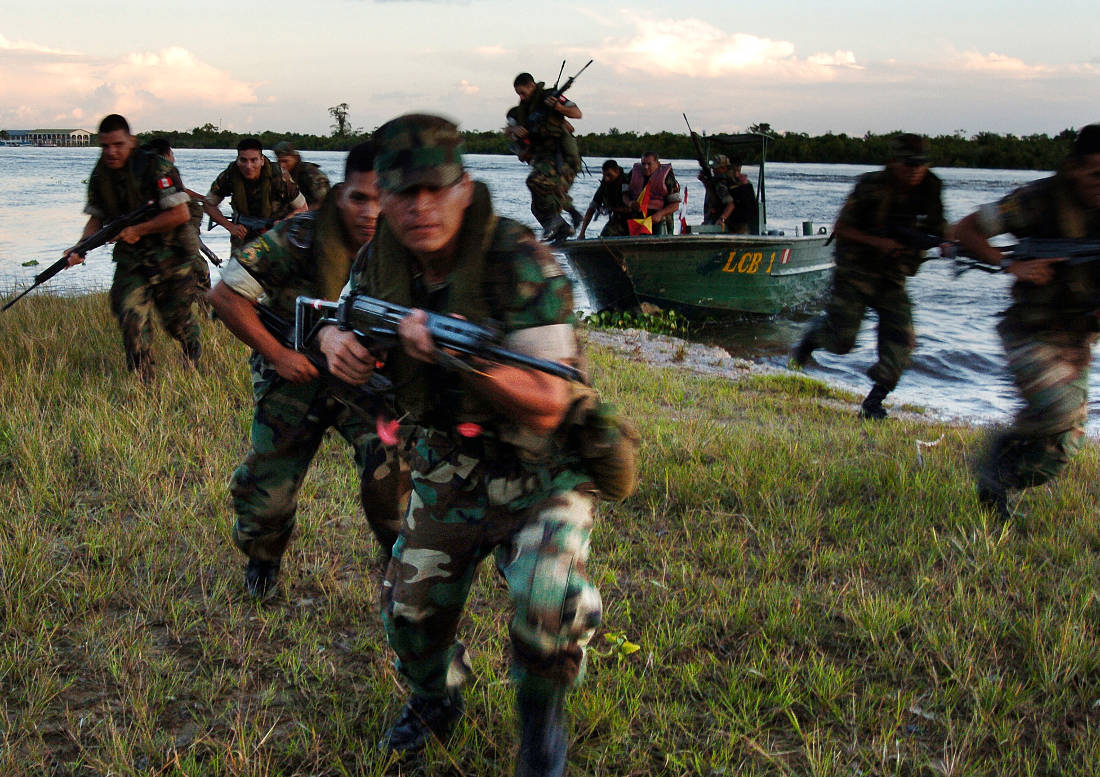CARACAS, Venezuela (ViaNews) – The Trump administration is having some open conflicts inside its territory and in other places around the globe. North Korea, Iran, Russia, Syria, Jerusalem, and Venezuela are a sample such different conflict types. Some are just “declarations warfare”, some include economic sanctions, but none has yet escalated into classical war actions.
“U.S. bark is worse than its bite”?
Trump’s Secretary of State, Rex Tillerson, seems to be preparing to bite the oil-rich Venezuela, telling the world´s other open fronts to be careful, because they do bite.
“I’ll be back”
Venezuela is not new for Rex Tillerson. He was recently appointed CEO at Exxon Mobile in 2007 when late Venezuelan President Hugo Chavez asked all oil companies operating in the country to ameliorate the government participation in the business. All agreed and stayed, but Exxon Mobile refused. Later it was nationalized, having to leave behind, installations claimed worth 10 billion dollars. The new CEO was responsible for such a loss. Venezuela paid in cash for the property. Since President Donald Trump entered the White House and Tillerson took office, matters have gone worse for Venezuelan government and also for Venezuelan people.
From April to July 2017, leaders of MUD (for Mesa de la Unidad Democrática, United Democratic Board) oppositionists to Venezuelan President Nicolás Maduro´s government had rallied in self-called “pacific protests” which allegedly took the lives of over 230 Venezuelans, caused major property loss, and paralyzed half of the country.
To stop this escalade, President Maduro called the country to elect members for a new Asamblea Nacional Constituyente. (ANC, National Constituent Assembly)
President Trump urged President Maduro to stop these elections, or the U.S. would impose severe economic sanctions and commercial blockade.
Both presidents carried on. The protests ended when the Government won the elections to form the new ANC, and the economic sanctions were applied. U.S. banks (and European banks followed) stopped money transactions with debt papers and cash originated in the South American country, which holds the major proven oil reserves in the world.
Money is valuable when it moves
Venezuela has the money, but can´t pay for food, medicines, spare parts, oil, and gasoline additives or whatever was purchased in European countries or in North América, throughout the last 150 years.
Imported medicines, spare parts, corn, rice, and wheat are scarce, and people have to wait in long lines to buy bread. Fresh food is available, including vegetables, cattle meat, fish, poultry and dairy, but its prices are doubling every 30 days, pushed by what government officials call “economic warfare designed by the U.S. and its local allies, the MUD”.
The government consequently raises minimum wages and claims the price rise is artificially pushed by oppositionists who are the owners of farms, industry, and commerce.
Government and popular organizations provide a box of 6 to 7 Kg food (cornflower, spaghetti, canned tuna fish, powdered milk) to almost half the households once every month, for the equivalent of black market US$ 0.0001304 each box. A liter of gasoline costs US$0.0000042 and the minimum monthly wage is near four black market US dollars.
Venezuelan oil wealth also permeated to the poorest people during the 18 years revolutionary process. There are 7 million households in Venezuela and almost two million apartments have been newly built and given, or sold at a very low cost, to people that before the revolutionary process lived in tin and cardboard “ranchos” slums. Alphabetization has reached 100%, and school and university studying is free. All women over 55 and men over 60 get a government pension of nearly half the minimum wage.
The Petro: A Venezuelan Crypto-asset to end with the US$ dependence
Early this year and after blockade effects were felt, President Maduro announced that the nation was going to issue a CryptoAsset called The Petro, backed up by proven oil reserves, which will grant a very much needed independence from U.S. Dollar, the Federal Reserve, and U.S. banking system.
On February 6, OPEC Secretary General, Mohammad Sanusi Barkindo, met with President Nicolás Maduro in Caracas, where they discussed various issues related to energy and the oil markets. President Maduro declared that he proposed to the Secretary-General the possibility of using the Petro for all Opec and not Opec oil transactions.
China is also expected to abandon the US$ to deal with energy and is going to propose oil futures denominated in PetroYuans, with an official announcement expected before April, as mentioned by Reuters and Russia Today.
Winning three elections
In spite of this economic war effects on people, there had been Governors and Majors elections, both won by the governing PSUV (United Socialist Party of Venezuela). President Maduro is permanently calling the oppositionists for peace talks.
Lots of talented and well prepared young people are leaving the country toward other South American countries, Europe and the U.S.
In December 2017, oppositionists accepted to start conversations with the government to return to normality. The conversations were held in the Dominican Republic, where its President, Danilo Medina; Spain´s ex-president, José Luis Rodríguez Zapatero; the Foreign Secretary of México, Chile, Bolivia, and Nicaragua acted as mediators to help the dialog.
They almost arrived at an agreement, but on February 7, the conversations were suspended. They had agreed on all points, but suddenly MUD left the Dominican Republic. Some observers said it was after a phone call from Bogotá, where Rex Tillerson was at the moment.
The Monroe Doctrine: America for the Americans
On February 6, Rex Tillerson started a blitz trip to Mexico, Argentina, Peru, Colombia, and Jamaica, from Austin University in Texas, where he gave a speech stating that Monroe´s doctrine (1823, America for the (north)Americans) was perfectly standing today, and any outside intentions should be stopped.
Venezuela has many oil partners exploring and extracting oil and gas from around the world, including Russia and China, which at the same time are providing all imports which Europe and the U.S. are losing.
Tillerson´s trip alleged objectives included tightening loose ties with Latin America, and obtaining support against the Venezuelan government, looking for the non-recognition of April´s presidential election results.
Venezuela has borders with three countries: Colombia, Brazil, and Guyana.
In the South, since November 7, 2017, there are military maneuvers being carried out by the US, Brazil, Peru, and Colombia in the Amazon Jungle, in the Brazilian town of Tabatinga with US supervision, 1.550 Brazilian troops, 150 Peruvians and 120 Colombian soldiers. In the West, Colombia has 9 US military bases.
At the East lies Guyana, with its new international partner: Tillerson´s Exxon Mobile exploiting oil and gas, and a former military general David Granger, newly elected President.
On February 11, Commander Kurt Tidd, United States Southern Command, visited Colombia and met Colombian Vice President Oscar Naranjo talking about “antinarcotics efforts”.
Observers maintain that although the US Government objective is removing President Nicolás Maduro from the Venezuelan government, there will not be an open US invasion, but they are allegedly trying to get a part of the Venezuelan armed forces to help them from inside, which seems very improbable.
Meanwhile, many Colombian paramilitaries fled into Venezuela, and they could start the ignition spark needed by the U.S. to urge other Latin American nations to go into Venezuela to “help to restore peace”.
Political analyst Atilio Borón from Buenos Aires was reported by Prensa Latina to have said that Dominican Republic talks did not conclude as expected, because of Washington´s pressure over Venezuelan Oppositionists not to sign for a peaceful election outcome, preferring a Libya or Iraq model violent ending.
Also this week, in synchronism with Tabatinga maneuvers, Rex Tillerson latin tour, and Commander Kurt Tidd, United States Southern Command visit to Bogotá, the OAS (Organization of American States) Inter-American Commission on Human Rights, based in Washington, published its report about Venezuela. (//www.oas.org/en/iachr/media_center/PReleases/2018/025.asp)
Venezuelan Government delegates to the peace talks had signed the “not agreed agreement”, and the presidential election date, there established, will be enforced.
General elections for the presidency will be held next April 22, 2018.




